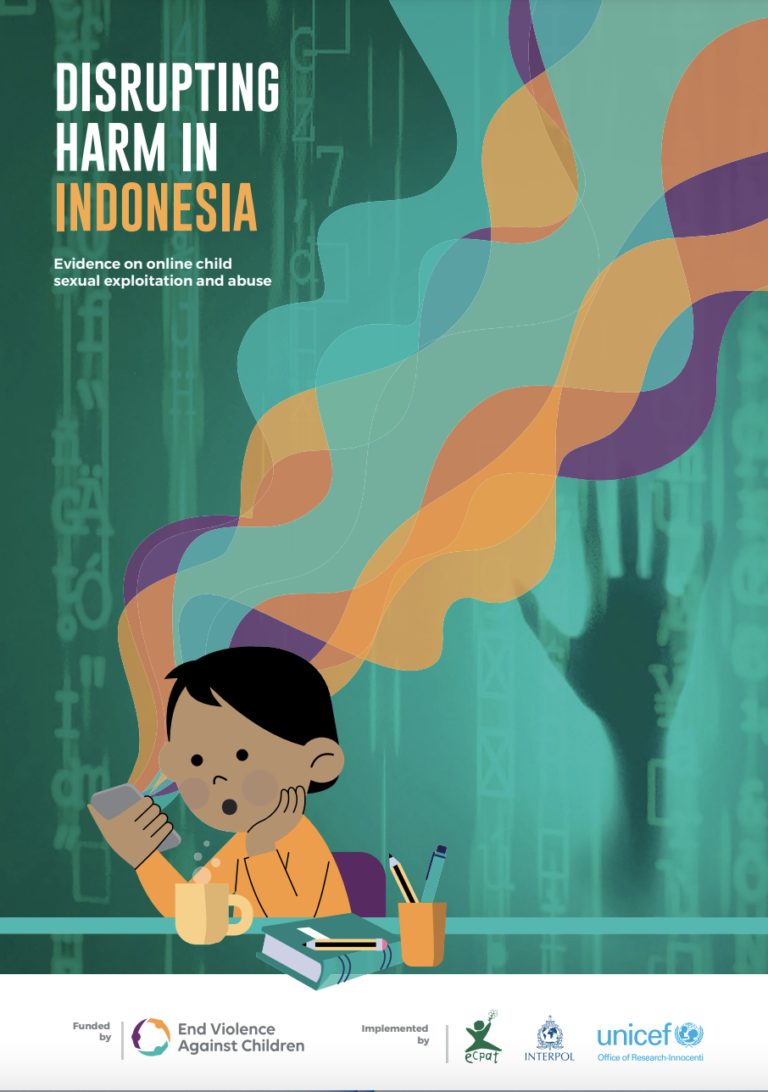Funded by the Global Partnership to End Violence against Children, through its Safe Online initiative, ECPAT, INTERPOL, and UNICEF Office of Research – Innocenti worked in partnership to design and implement Disrupting Harm – a research project on online child sexual exploitation and abuse (OCSEA). This unique partnership brings a multidisciplinary approach to a complex issue in order to see all sides of the problem. OCSEA refers to situations that involve digital or communication technologies at some point during the continuum of abuse or exploitation; it can occur fully online or through a mix of online and in-person interactions between offenders and children. The Disrupting Harm research was conducted in six Southeast Asian countries, including Cambodia, and seven Eastern and Southern African countries. Data was synthesised from nine different research activities to generate each national report. These tell the story of the threat and present clear recommendations for action.
Insights: The report concludes by highlighting six key insights from the research:
1. In the past year, 11% of internet-using children aged 12–17 in Cambodia were subjected to clear examples of online sexual exploitation and abuse that included being blackmailed into engaging in sexual activities, having their sexual images shared without permission or being coerced into engaging in sexual activities through promises of money or gifts. Scaled to the national population, this represents an estimated 160,000 children who may have been subjected to any of these harms in the span of a single year. Boys reported such experiences almost twice as often as girls.
2. According to the household survey, most offenders of OCSEA were people already known to the child. These were often family members, adult friends, peers or romantic partners. People previously unknown to the child were responsible for approximately one in five instances of the OCSEA-related offences identified in the household survey.
3. Children mainly experienced OCSEA through the major social media platforms, with the most common platforms being Facebook/Facebook Messenger and WhatsApp.
4. Children who were subjected to OCSEA crimes tended to confide in people within their interpersonal networks, particularly their friends, male caregivers and siblings. Helplines and the police were almost never avenues through which children sought help.
5. A range of promising initiatives driven by government and civil society are already underway in Cambodia; however, significant challenges still exist. The growing momentum and commitment to ensure that children in Cambodia are protected from OCSEA should be used to increase awareness and improve the skills and resources with which law enforcement, justice and social support workers can respond.
6. While the launch and ongoing implementation of the OCSEA Plan of Action is an important step, other legislation, policies and standards still need to be enacted in Cambodia. The report ends with a detailed map for action to be taken by government, law enforcement, justice and social services sectors and those working within them, by communities, teachers and caregivers, and by digital platforms and service providers. The recommendations are too detailed to be recounted in the Executive Summary but can be found on page 94 of this report.

